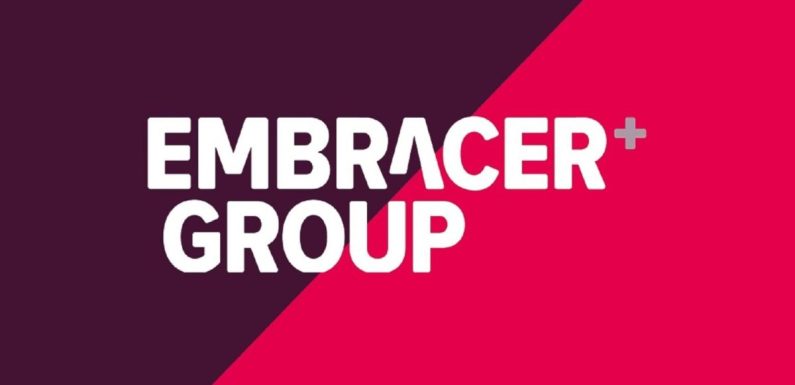Here’s a primer on probably the most typical kinds of mortgages.
5 forms of home mortgages:
1. Main-stream mortgages
A regular home loan is a house loan that is perhaps maybe perhaps not insured because of the government that is federal. There’s two forms of mainstream loans: conforming and loans that are non-conforming.
A loan that is conforming means the mortgage quantity falls within optimum restrictions set by Fannie Mae or Freddie Mac, federal federal government agencies that back most U.S. Mortgages. Having said that, loans that don’t meet these instructions are believed loans that are non-conforming. Jumbo loans would be the many type that is common of loan.
Generally speaking, lenders need you to spend personal home loan insurance on numerous main-stream loans once you pay lower than 20 per cent associated with the home’s price.
Professionals of old-fashioned mortgages
- Can be utilized for the main house, 2nd home or investment home.
- General borrowing expenses are generally less than other kinds of mortgages, even in the event rates of interest are somewhat greater.
- You can easily pose a question to your lender to cancel PMI when you’ve gained 20 % equity.
- You are able to pay less than 3 per cent down for loans supported by Fannie Mae or Freddie Mac.
Cons of main-stream mortgages
- Minimal FICO rating of 620 or maybe more is necessary.
- You’ll want a ratio that is debt-to-income of to 50 per cent.
- Probably need to pay PMI if for example the deposit is less than 20 % for the product product sales cost.
- Significant documentation required to verify earnings, assets, down repayment and employment.
Whom should get one?
Mainstream loans are perfect for borrowers with strong credit, an income that is stable work history, and an advance payment of at least 3 per cent.
2. Jumbo mortgages
Jumbo mortgages are mainstream loans which have non-conforming loan limitations. This implies the house costs exceed federal loan limitations. For 2018, the conforming that is maximum restriction for single-family domiciles generally in most of this U.S. Is $453,100, based on the Federal Housing Finance Agency. In a few high-cost areas, the purchase price roof is $679,650. Jumbo loans are far more typical in higher-cost areas and generally require more documentation that is in-depth qualify.
Benefits of jumbo mortgages
- You can easily borrow more cash to purchase a house within an area that is expensive.
- Interest levels are generally competitive along with other loans that are conventional.
Cons of jumbo mortgages
- Deposit of at the very least 10 to 20 per cent is required.
- A FICO rating of 700 or maybe more typically is needed, even though some loan providers need a score that is minimum of.
- You simply cannot have a debt-to-income ratio above 45 %.
- Must show you’ve got assets that are significant10 % for the loan quantity) in money or cost savings records.
Who should get one?
Jumbo loans seem sensible to get more affluent purchasers purchasing a home that is high-end. Jumbo borrowers needs to have good to exceptional credit, high incomes and a considerable payment that is down. Numerous reputable loan providers provide jumbo loans at competitive prices.
Utilize Bankrate’s calculator to find out just how much you’ll pay for to blow on a property.
3. Government-insured mortgages
The U.S. Federal federal government is not a mortgage company, but a role is played by it in aiding more Americans become property owners. Three federal federal government agencies straight straight back loans: the Federal Housing management (FHA loans), the U.S. Department of Agriculture (USDA loans) and also the U.S. Department of Veterans Affairs (VA loans).
FHA loans: supported by the FHA, these loans help to make homeownership easy for borrowers whom don’t have actually a sizable down re re payment saved up and don’t have pristine credit. Borrowers require a minimum FICO score of 580 to have FHA’s optimum 3.5 per cent financing. However, a credit history of 500 is accepted with at the very least ten percent down. FHA loans need two mortgage insurance costs: a person is compensated upfront, while the other is compensated yearly when it comes to full lifetime of the mortgage if you add significantly less than 10 % down. This will raise the cost that is overall of home loan.
Read more as to what makes FHA loans therefore popular among home loan borrowers.
VA loans: VA loans offer flexible, low-interest mortgages for users of the U.S. Military (active responsibility and veterans) and their own families. VA loans don’t require a payment that is down PMI, and shutting prices are generally capped and might be compensated because of the vendor. A money cost is charged on VA loans as a portion associated with loan add up to help counterbalance the program’s price to taxpayers. This charge, and also other closing costs, could be rolled into many VA loans or compensated upfront at closing.
USDA loans: USDA loans assist moderate- to borrowers that are low-income domiciles in rural areas. You need to buy a property in A usda-eligible area and fulfill specific earnings restrictions to qualify. Some USDA loans don’t require a down payment for qualified borrowers with low incomes.
Benefits of government-insured loans
- They assist you to fund a property whenever you don’t be eligible for a loan that is conventional.
- Credit requirements are more stimulating.
- You don’t need a sizable deposit.
- They’re available to duplicate and buyers that are first-time.
Cons of government-insured loans
- Expect you’ll spend mandatory mortgage insurance premiums that simply cannot be canceled on some loans.
- You’ll have higher overall borrowing expenses.
- Be prepared to offer more documents, according to the loan kind, to show eligibility.
Whom should get one?
Government-insured loans are perfect when you yourself have low money cost savings, less-than-stellar credit and can’t qualify for the loan that is conventional. VA loans have a tendency to provide the most useful terms and many freedom when compared with other loan kinds for armed forces borrowers.
4. Fixed-rate mortgages
Fixed-rate mortgages keep carefully the interest that is same within the life of your loan, which means that your month-to-month mortgage repayment constantly remain the exact same. Fixed loans typically can be bought in regards to fifteen years, two decades or three decades.
Benefits of fixed-rate mortgages
- Your principal that is monthly and re re re payments remain exactly the same through the entire lifetime https://installmentloansgroup.com of the mortgage.
- It is possible to more exactly budget other expenses to thirty days month.
Cons of fixed-rate mortgages
- You’ll generally spend more interest having a longer-term, fixed-rate loan.
- It will take longer to build equity at home.
- Interest levels typically are greater than prices on adjustable-rate mortgages.
Whom should get one?
In the event that you intend to stay static in your property for at the least seven to a decade, a fixed-rate home loan provides stability along with your monthly premiums.
5. Adjustable-rate mortgages
Unlike the stability of fixed-rate loans, adjustable-rate mortgages (ARMs) have fluctuating interest prices that may increase or down with market conditions. Numerous ARM items have a set rate of interest for some years prior to the loan resets to an interest that is variable for the remaining regarding the term. Try to find a supply that caps exactly how much your rate of interest or month-to-month home loan price can increase so that you don’t end up in monetary difficulty once the loan resets.
Pros of adjustable-rate mortgages
- You’ll enjoy a lower life expectancy fixed price in the 1st couple of years of homeownership.
- You’ll save an amount that is substantial of on interest re re payments.
Cons of adjustable-rate mortgages
- Your month-to-month mortgage repayments may become unaffordable, causing a loan default.
- House values may fall in a several years, which makes it harder to refinance or offer your house ahead of the loan resets.
Whom should get one?
You really must be confident with a specific degree of danger before getting A supply. In the event that you don’t intend to remain in your house beyond a few years, an supply will save you big on interest payments.




